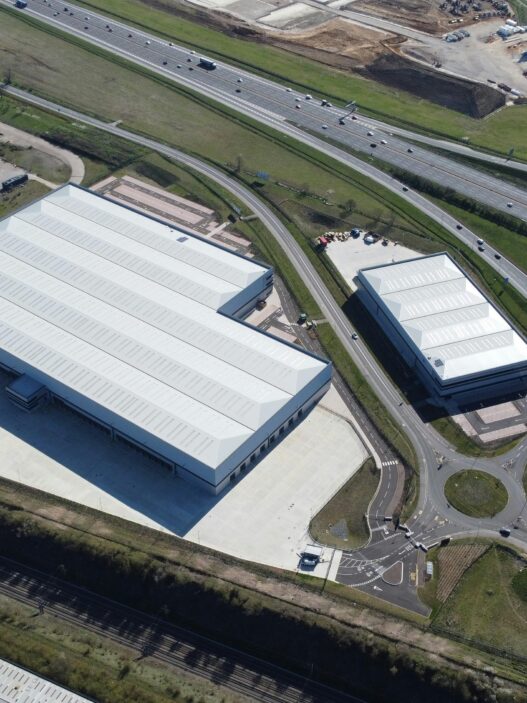
In South Africa’s changing economy, commercial real estate (CRE) is a strong option for building wealth and protecting against inflation. It can generate steady income, increase in value, and serve as a safeguard against rising prices. This article looks at the opportunities in South African CRE, the benefits of asset-backed investments, and how wealthy individuals use this asset class to grow and protect their wealth.
Why Commercial Real Estate in South Africa?
South Africa’s CRE market includes office spaces, retail centres, industrial properties, and logistics hubs. It offers great opportunities in 2025. Despite challenges like load shedding and infrastructure issues, the market benefits from positive trends:
• Declining Interest Rates: The prime lending rate fell to 10.75% in May 2025, lowering borrowing costs and making CRE financing more affordable (e.g., R470 less per month on a R1 million bond).
• High-Demand Sectors: Logistics and warehousing, driven by e-commerce growth, student accommodation due to a 500,000-bed shortage, and retail centers in wealthy areas (30% of 2023/24 transactions) are thriving.
• Semigration Trends: Coastal regions like the Western Cape are seeing more demand for commercial properties due to population shifts, which boosts rental yields and capital growth.
CRE investments provide stable cash flow through long-term leases, often with reputable tenants. They also have the potential for capital appreciation in fast-growing areas like Cape Town or Gauteng’s industrial zones. For those with limited capital, options like Real Estate Investment Trusts (REITs), crowdfunding, or syndication make it easier to get involved.
How the Wealthy Use Commercial Real Estate as a Wealth Builder
Wealthy individuals have often used CRE as a key part of their wealth-building plans, taking advantage of its unique traits to grow and protect their fortunes. Here’s how:
• Leveraging Other People’s Money (OPM): High-net-worth individuals use bank loans to buy CRE, maximizing their returns. For instance, a R10 million office building financed with a 20% deposit (R2 million) and an 80% loan can yield rental returns and capital gains that far exceed the initial investment.
• Diversification Across Property Types: Wealthy investors spread their investments across retail, industrial, and office properties to reduce risk. For example, investing in a mixed-use development in Cape Town’s CBD combines retail and office income streams, balancing market ups and downs.
• Tax Efficiency: Wealthy individuals take advantage of tax deductions on CRE costs and often structure investments through trusts or companies to reduce tax burdens. Capital gains tax exclusions (e.g., R2 million for primary homes) and lower effective rates on property sales improve returns.
• Long-Term Wealth Creation: CRE’s compounding effect—by reinvesting rental income and benefiting from property appreciation—creates generational wealth. A well-located property bought today could double in value over 10 to 15 years, as seen in places like Sandton or the V&A Waterfront.
• Syndication and Partnerships: Wealthy investors collaborate through syndicates to invest in high-value CRE, such as shopping centres or industrial parks, sharing profits without needing to manage properties directly. This strategy lowers entry costs and spreads risk.
For example, a wealthy investor might join a syndicate to acquire a R50 million logistics hub in Durban, contributing R5 million for a 10% stake. With an 8% annual rental yield and 7% capital growth, their investment could deliver significant returns over a decade, well above inflation.
Conclusion
Commercial real estate in South Africa is an effective tool for building wealth. It offers inflation-protected returns, asset-backed security, and notable tax benefits. By taking advantage of financing, diversifying property types, and targeting high-growth sectors, investors can follow the strategies of the wealthy to enhance their portfolios. Whether through REITs, crowdfunding, or direct ownership, CRE presents a real opportunity for financial security in 2025’s changing market.

















